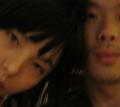 Cancer’s Inconvenient Truths
Cancer’s Inconvenient TruthsInconvenience #1: Genetics represents < 10% of the risk but most of the science...
 Is math inherently part of the structure of the universe?
Is math inherently part of the structure of the universe?In another thread on Science 2.0 we got onto the nature of existence and what we can say for certain...
 Is cancer curable?
Is cancer curable?James Watson, co-discoverer of DNA’s double-helix structure recently called for a back to...
 Cancer research surprises
Cancer research surprisesMany people would admit to not understanding cancer well, but fewer people would admit to not understanding...







